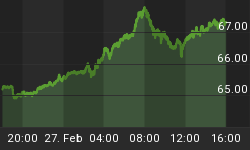Bloomberg TV Exclusive: Citigroup CEO Vikram Pandit spoke about the financial crisis and the outlook for the bank and Citi Holdings division at the Securities Industry and Financial Markets Association's annual meeting in New York. Pandit said "we're a bank, not a supermarket" and that Citi is continuing to sell off assets.
Pandit on what he learned from the 2008 financial crisis:
"Although we're seeing some of the signs of 2008 today, I think it is fundamentally different today than it was back then."
"When you go back and think about what brought all of this on, it was leverage. We're still living through the impact of leverage: consumer leverage, bank leverage, government leverage. It seems wonderful to borrow just a little bit more when things are going good, but invariably the history of crises [show] leverage is at the heart of it. We learned it yet again what happens to the world when leverage rises to levels that are unsustainable, and we're still living through that today in the form of what is going on with the governments, including our own, but not only our own. Certainly we're all watching what is going on in Europe."
"The other thing we've learned, and I'm not so sure it is new...is that markets and market confidence move a lot faster than policy makers. Confidence is a big part of what it takes to deal with crises, and we're got to figure that out even better. We're living through today again in Europe...We have to make sure that these things are more synchronized. That's a real danger. It's a real issue for policy makers to deal with on an ongoing basis."
On Citigroup's lessons from the financial crisis:
"For [Citigroup], the lessons are really simple. We understand very well that banking had to go back to its root mission, which is to serve our clients. Banking has to be a means to an end, not an end in itself. For us, the strategic restructuring was straightforward. We went back to the basics of banking."
"By the way, we took a number of actions, which led to realizing we needed to sell 40% of the assets of Citi, to bring it back to the core mission of serving our clients. We have been doing that very steadily. Today as I look back, clearly there were lots of challenges at that time. In many ways, for Citi we are thankful we got started early and understood we had to go back to why banks are in business in the first place, which is to serve the economy."
On selling 40% of assets and the future of the Citi Holdings Division:
"These 40% were not about only assets that we wish we didn't have on our books but it was about businesses like Primerica, Smith Barney -- great businesses, but really not core to the mission we were on. For a period of time, it felt like being a supermarket of financial services businesses was the right strategy. As I looked at it, which every CEO should do when they first come into the job, and I looked at where the world was going, where regulation was going and what we were really good at became pretty clear."
"We're a bank, not a supermarket. So we took the assets and said, We're going to sell them. The number was about $800 billion-ish and last quarter we were about $300 billion-ish in assets and today with some of the changes we've made and some of the assets that we've sold and moved, we started at 40% of assets at Citi Holdings and today we're down to 13%. I wouldn't doubt we get down 10% and then [Citi Holdings division] becomes an issue that's really not core to Citi."
"The core business now is the 60%, what I call the business of connecting the world for our clients, taking U.S. businesses abroad, having them get a chance to export more, and for that matter connecting clients. We have a number of clients around the world who are really global in their aspirations and connections, and those are the kinds of clients we serve best."















